|
|
||
|
Pro Tools
FILMFESTIVALS | 24/7 world wide coverageWelcome ! Enjoy the best of both worlds: Film & Festival News, exploring the best of the film festivals community. Launched in 1995, relentlessly connecting films to festivals, documenting and promoting festivals worldwide. Working on an upgrade soon. For collaboration, editorial contributions, or publicity, please send us an email here. User login |
Interview with producer Gabe Cowan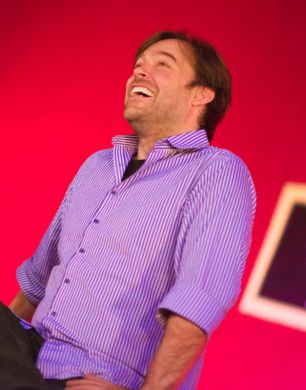 New Artists Alliance's partners Gabe Cowan and John Suits are two of the most prolific producers of indie filmmaking today. While most industry players will attest to how hard it is to even finish one film in today's uber competitive climate, this indie powerhouse team is cranking out 5-6 new films a year and going on strong. When asked how they do it, Gabe just replies with a solar smile: “We don't sleep”. Most recent on the NAA slate are two debut films at the 2014 Tribeca Film Festival: Courteney Cox’s directional debut “Just Before I Go” and Adam Rapp’s “Loitering with Intent” starring Sam Rockwell and Marisa Tomei. Up next on the menu, New Artists Alliance is cooking up a medley of films for 2014 consisting of a documentary on Juvenile Justice issues entitled “The Ordinary World” and new thrilling movies of all genres which will star Dane Cook, Michelle Trachtenberg, Jaime Pressley, Robin Thicke and others.
I interviewed Gabe in LA this past week about his two films premiering at the 2014 Tribeca Film Festival. Here is what he had to say: ME: New Artists Alliance is about to shoot its 18th feature. Can you tell us about how you began the NAA journey? GABE: Yes, we are about to shoot our 18th feature. My partner John Suits and I met while studying for our MA degrees at Cal Arts in 2006. Before that summer, we shot a short film that was a 30 minutes. At the end of that weekend we said: "If we can shoot a half hour in a weekend then we can shoot a whole feature in a week". We just did the math. We went to our teachers and asked if we could use the school equipment and insurance but they refused and said: "No, go be an intern on a big movie". So we said: "Screw you guys!" and wrote a feature script in nine days and went and shot it in a week. ME: What was your first film? GABE: It was a thriller called "Breathing Room". It was six weeks from the time we decided to make a movie to the time we had written, cast and shot it. Somehow we got it into a bunch of festivals and sold the movie. We made a bunch of money and came back to school as these guys that had done an indie movie. After that, we went to work on our thesis project. I went to Rwanda and shot a documentary on reconciliation and forgiveness in post-genocide Rwanda and my partner John shot a drama about the effects of alcoholism on a family. But when we tried to sell those movies, we realized just how hard it is to make money on Dramas and Documentaries. We are tremendously proud of those films but we needed to figure out a way to make work we were proud of that also paid the bills. So we now make two genre films for every drama or documentary we do. ME: That's a great model. You make the films that will make money first then the passion projects on the side? GABE: With dramas you can attract bigger names. One of the films we have at TriBeCa called “Loitering with Intent”, which stars Sam Rockwell and Marisa Tomei. This caliber of actor probably won’t do a genre film unless it’s incredibly elevated but they might make a drama because they’re talented passionate artists looking to do something cool. In the case of Loitering With Intent, Ivan and Michael had written a wonderful script and we were lucky to be a small part of it. There are not a lot of good dramas around but those are often the good films. ME: Do you and John always work with the same crew? GABE: We have a rotating crew that are three different crews. We like to use the same people because we sort of have mental telepathy at this point with a lot of our DPs and mostly, although not always, with first time directors. Part of the idea of the company was to share the profits with our cast and crew and to help first time directors get their films made. Ten or eleven of the seventeen films we've made have been first time directors. ME: Are the scripts you produce always written by the directors? GABE: About 70% of the time the script is written by the director and 30% not. For example, the other film we have at TriBeCa called “Just Before I Go” is directed by Courtney Cox who is herself a first time director. She really worked her way up to this by directing seven or eight episodes of her TV show and she directed a Lifetime movie. We've known each other for years. I used to be in a band with David Arquette called 'Ear 2000', one of the worst names in show business, but it was a really fun band. We toured and even had a song on the Scream soundtrack. When I ran into her at a party last year, I hadn't seen her for ten years. She asked me what I was up to and I told her about New Artists Alliance and the films we had been producing and she said: "I have a script and I want to make my first movie”. She asked me to read the script and give her notes, which I did. When I got back from SXSW last year we had won the Audience Award with one of our films “Cheap Thrills”, which was also a first time director. ME: Can you talk about your genre films? What do you look for when you decide to produce an indie genre? GABE: The thing that we try to have as the consistent theme is character driven genre stuff. I think the first couple of movies we made that wasn't the rule. The rule was just to get it done. But then we wanted to focus on the film being good and the best way for that is to focus on the characters and get into meaningful change within whoever it is you are following through this journey. ME: Why is it so important to keep the indie film budget so low? GABE: It's very tough today to make more than $600K on on lower budget films. You have to have really big names and the movie needs to be exceptionally good. But nothing is a sure thing because even Spielberg and Scorsese have made bad movies. Great filmmakers sometimes make bad movies so you can't rely on the movie being great. What you can rely on is your bottom line number that tends to be about $500K which is what lower budget indies are generally worth. Even the movie with Sam Rockwell and Marisa Tomei was really hard financing that film because smart money knows that dramas have a very hard time making a return on investment. Some do incredibly well. The vast majority do not. The lead producers on that film were Lars and Jay who helm the amazing Parts and Labor team. They made “Beginners” amongst a slew of other incredible movies so they know how to make a profit on art house films. They understand that space. Our skill set leans more toward elevated genre. For us, it’s a safer financial bet - and you still get the opportunity to make great work that you’re proud of. Look at Mark Duplass hooking up with Jason Blum for Creep or look at You’re Next or Cheap Thrills or Big Bad Wolves. Character driven genre rocks. They get that space, but still the genre space is such a specific and small box to fit in, especially if you are making good genre films. In the end, it’s more reliable for us plus you get the opportunity to tell interesting and unexpected stories inside the genre space. ME: The genre films then provide the space to make the dramas in between? GABE: Yes. We make about five movies a year. It's really hard and we barely ever sleep but last year we made “Loitering with Intent” and “Just Before I Go” with Courtney Cox. Both of those are at TriBeCa this year. We also made a movie called “Chuck, Hank and the Sad Diego Twins”. That was our one genre film that takes place inside a video game which has David Arquette in it. We were in downtown LA with a fifty person fight sequence like “Braveheart” literally lighting the streets on fire for that one, with basically no money. ME: Where are most of your films shot? GABE: Almost all a shot in Los Angeles because actors like to hear that they can sleep in their homes. The tax incentives on the bigger budget films make that tough though. ME: What was your passion project film for last year that was not genre? GABE: Our passion project last year is called “The Ordinary World”, which is a documentary. I started a screenwriting program for juveniles who are being tried as adults. We went into a juvenile maximum security facility and I did this screenwriting workshop with a 14 year-old facing 200 years in prison. There are also a couple of 17 year-olds facing sentences too. I brought in Destin Cretton who wrote and directed “Short Term 12” last year. He came in for a couple of classes and met with the kids and we wrote this twenty page screenplay. We are now going to go out and make the movie which will be a film by these kids who are facing really tough stuff. Ultimately, the screenwriting class became a reflection of them facing themselves. ME: How long did it take to get these juvenile stories out? GABE: It took a long time. You can imagine what these kids are going through because decision making at that age is so tough. In the case of these kids, it took about six or seven classes before they stated breaking down because you have to be pretty tough when you're in prison; being emotionally vulnerable isn't really an option. I just witnessed the trial for one of the kids from the class. He was accused of 4 counts of attempted murder and 36 other counts. The evidence makes it clear that he was part of the shooting but he was a child at the time. While he is guilty, at the same time I don’t think he want to kill the people he was shooting at. I think he wanted to scare them. But when you’re a kid and you’re making bad choices you do deserve a second chance at some point. I know I did. I mean, I didn’t shoot anyone but at 16 I made plenty of decisions that were less than stellar. He is probably going to get sentenced to 250 years. The Supreme Court made a rule that juveniles can not be convicted for “life” so they call it 250 years rather than a life sentence but we all know what it is. It’s the rest of your life in prison because of making bad choices and typically being born into a difficult circumstance. The documentary about the kids and this writing class is called “The Ordinary World”. A terrifically talented first time director named Ben Lear is helping the ship on the doc. We shoot the short film the kids wrote in a few months. The guy did it but because the evidence is clear he was part of the shooting. He just turned 18 and he was tried as an adult. While he is guilty, at the same time I don't think he went to kill the people they were shooting at. I think he just went to scare them. But when you're a kid and you're making bad choices you do deserve a second chance at some point. He is probably going to get sentenced to 250 years; you can't call it 'Life' in prison so they give you like 300 years. The Supreme Court made a rule that you can't sentence a juvenile to 'Life' but it's the same thing. The film is called “The Ordinary World” and it's a documentary. We brought cameras into the writing class and we interviewed all the kids so we really got to know them. On one story, we had some raw interviews with the kid and wrote a twenty minute short which is a loss of innocence story. That's in post production now and we will be shooting the short in a few months. We are hoping that Destin will direct it although he is busy with his Jennifer Lawrence movie. ME: You have so many incredible projects going on. What is next for you? GABE: We have these two at TriBeCa and we have a movie that comes out next month called “Making the Rules” with Robin Thicke and Jamie Pressley, which is a romantic comedy. We’re going into production mid May on a super cool science fiction film entitled 400 days. It is partly based on real life simulations being conducted where NASA and others take would be space travelers and place them in a simulator to see how hundreds of days in a small space affects the human psyche. The whole movie we are playing with the idea “is it a simulation or is it real”? It’s something J.J. Abrams would do. To train for a mission to Mars you have to be in a spaceship simulator for 250 days and the psychological effects are huge. The space.com people got us in touch with NASA and so we researched a lot about this and there is a whole concept in the movie where the people are in the simulator and after 397 days of this 400 day mission they're running out of oxygen and are forced to leave even though their mandate is not to leave. When they exit there is no light and the ground is not earth. We don't know if this is a simulation or if it's real. It's something like J.J. Abrams would do. ME: On that note, can you tell us about your J.J. Abrams story? GABE: I've been a member of a charity organization call the Children's Defense Fund with J.J. Abrams for like fifteen years. During my first year of film school I asked him about being a young filmmaker and if he could give me advice. I said: “I'm ambitious and I'm gaining new skills. You're doing so well. Maybe you could advise me on what should I do?” He was super generous with his time and totally honed in on me and gave me advice. The bottom line of what he said was: “Don't take 'no' for an answer. Go make a movie. Get a camera. You can get a camera anywhere now. Just go make a feature and that will be the best film school you can possibly have.” And that was my motivator. If you look up what J.J. tells young filmmakers, this is something he says a lot - and he’s right. It wasn't just to me that he says this. But he he is right. You have to just go out and do it. We made our first feature for $16,000 and we ended up making hundreds of thousands of dollars on it. It is by far the best percentage we’ve made in terms of return on investment. It was before DVD fell apart and before the whole industry changed, but the experience of making that movie launched our company, New Artists Alliance. Look out for news from New Artists Alliance here: http://http://www.naafilms.com/ 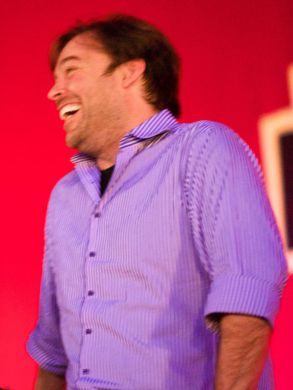 Interview with Gabe Cowan conducted by Vanessa McMahon 19.04.2014 | Vanessa McMahon's blog Cat. : Interview with producer Gabe Cowan Interviews
|
LinksThe Bulletin Board > The Bulletin Board Blog Following News Interview with EFM (Berlin) Director
Interview with IFTA Chairman (AFM)
Interview with Cannes Marche du Film Director
Filmfestivals.com dailies live coverage from > Live from India
Useful links for the indies: > Big files transfer
+ SUBSCRIBE to the weekly Newsletter Deals+ Special offers and discounts from filmfestivals.com Selected fun offers
> Bonus Casino
User imagesAbout Vanessa McMahonThe EditorUser contributions |






















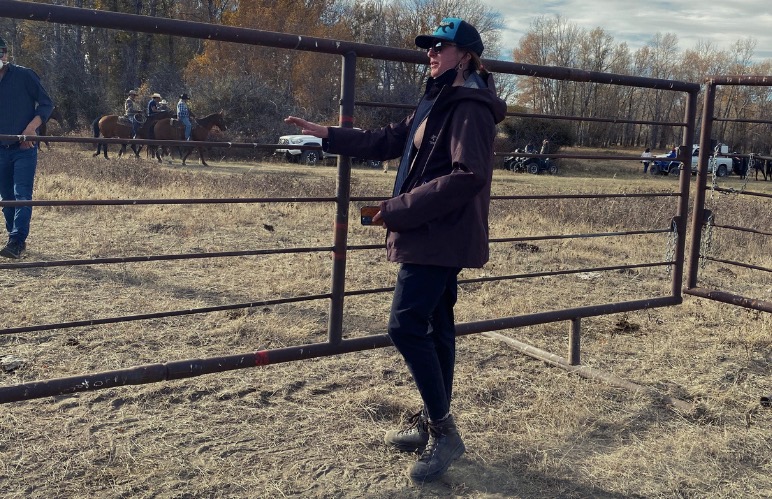
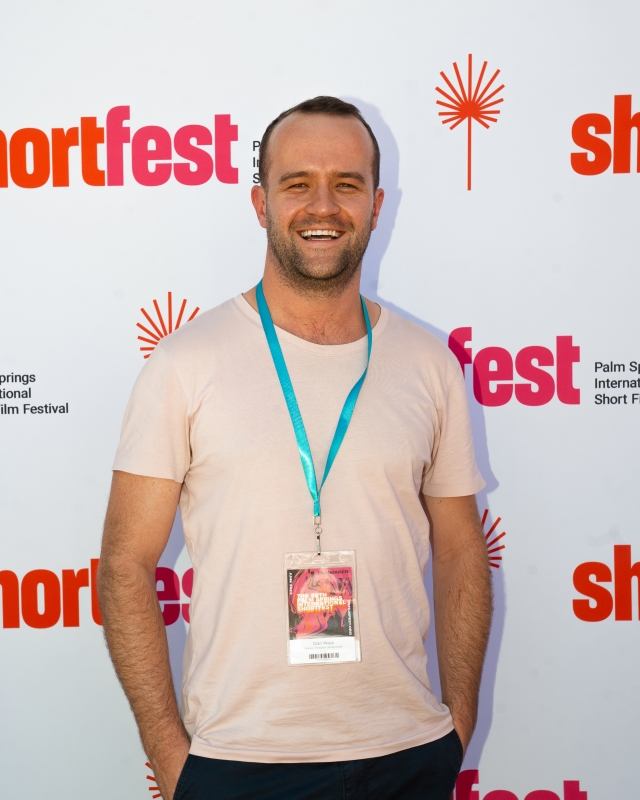
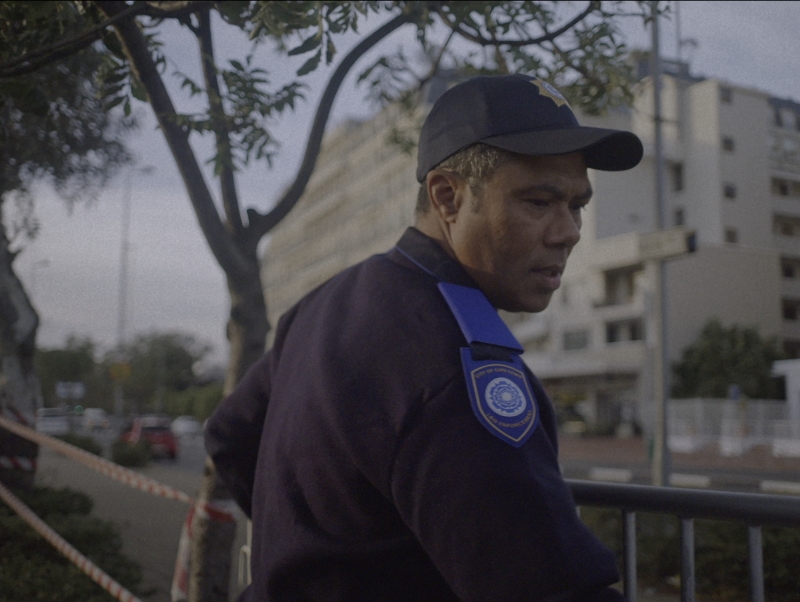
 McMahon Vanessa
McMahon Vanessa 


